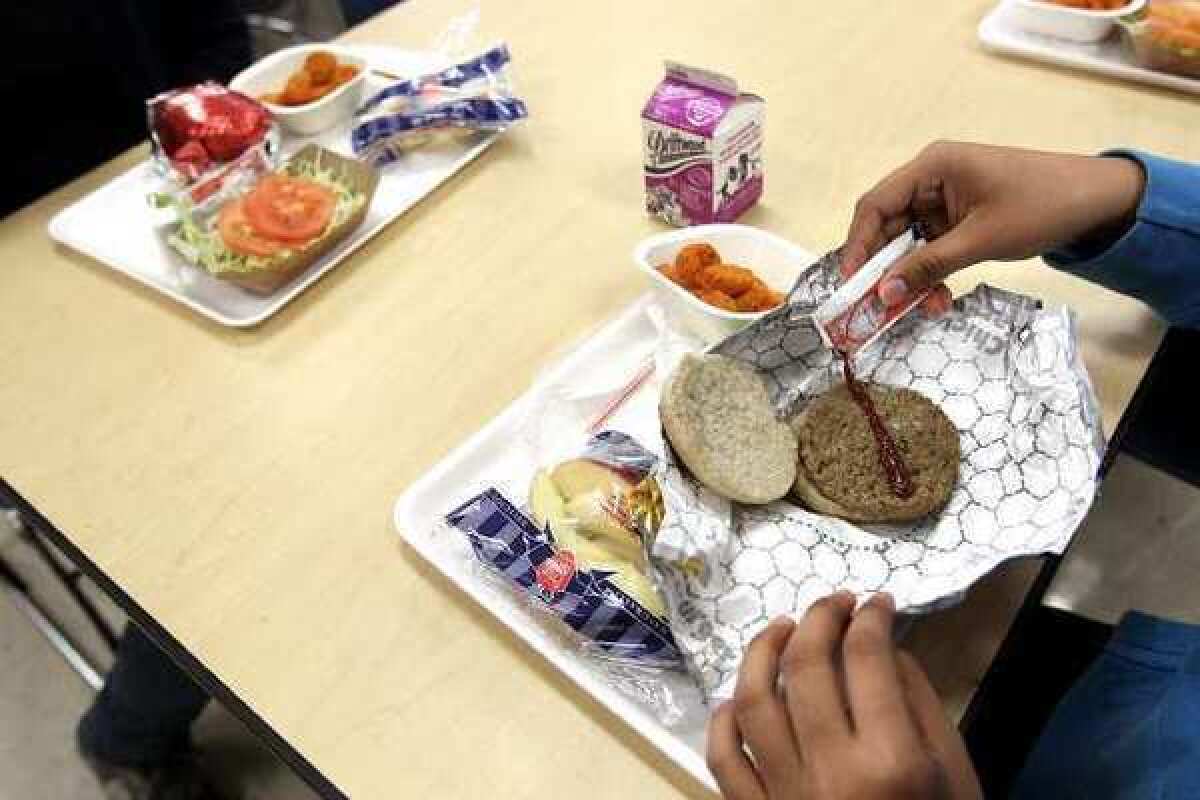Obesity: Doctors need to change their eating habits, too

Doctors are supposed to help patients eat healthfully — but they’re not exactly dietary angels themselves.
Skipping from meeting (snacks provided) to conference (catered, with jumbo cookies) to lunch at the hospital cafeteria (sugary soda on the side), many fall into the same bad habits the rest of us do, consuming too many calories, gaining too much weight, and eating all the wrong foods.
At least one group of researchers thinks it’s time for this to change. Writing in the journal JAMA on Tuesday (subscription required), researchers from the Palo Alto Medical Foundation Research Institute, the Rand Corp. and UCLA called on physicians to forgo the pizza and burgers and start demanding more healthful fare at work.
Encouraging caterers and cafeterias to start supplying lower-calorie, fruit-and-veggie packed meals could set a standard — perhaps even inspiring other businesses that buy food for workers to also begin requesting those types of meals, the authors wrote.
“Maybe here physicians could take a lead in demanding healthier food be more available,” said Dr. Deborah A. Cohen, a Rand obesity researcher and one of the study’s coauthors.
Cohen doesn’t blame U.S. doctors — 44% of whom were reported to be overweight or obese in a 2004 study — for overeating. “Physicians are really no different than other Americans, in how they respond to available food,” she said. “If you go to lunch and all that’s available is something unhealthy, that’s what you’ll eat.”
The solution isn’t calling on doctors to exercise more will-power than the rest of us, she added. Rather, medical establishments should take the lead in nudging food vendors to serve better stuff in healthcare settings, “ensuring that what’s available in healthy.”
Such action would make doctors healthier, of course. But it also could help others. Researchers have shown that overweight physicians are less likely to counsel patients on obesity than medical providers of normal weight. Cohen and her coauthors also think that just as hospitals enforcing no-smoking rules led to nonsmoking campuses of all kinds across the U.S., guidelines requiring that hospital lunches or dinners don’t exceed 700 calories, for example, might influence all kinds of food providers to serve more appropriate portions.
“I think that the focus we’ve had on getting people to change behavior is misguided,” she said. “We should be talking about changing the environment.”
To help that happen, Cohen and colleagues will soon publish a report with recommendations for standards for “away-from-home meals,” she said.




